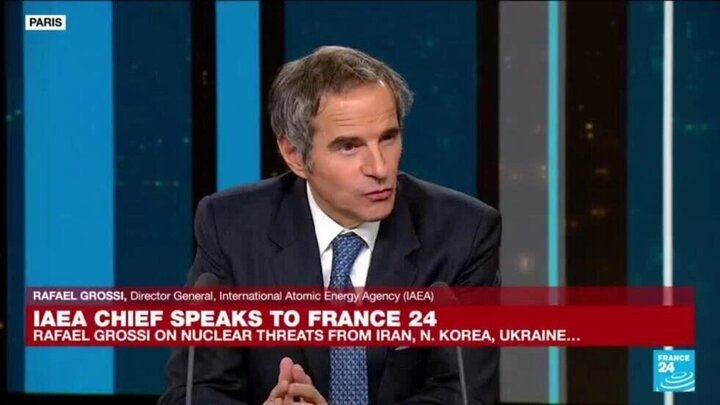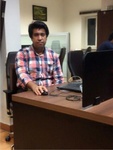"Iran does not have nuclear weapons, but it has certain nuclear capabilities that are a source of concern," International Atomic Energy Agency (IAEA) chief Rafael Grossi tells FRANCE 24 in a wide-ranging interview also touching on nuclear threats in Ukraine and North Korea.
According to Grossi, there are many questions about Iran's nuclear program that the Agency and Iran have tried to solve. He also said that the two sides have solved some cases while some other issues are still outstanding.
He said that after the United States' withdrawal from the nuclear deal known as the JCPOA in 2018, Iran took some retaliatory measures and ceased abiding by some provisions in the nuclear deal and increased the enrichment level to an allegedly concerning level.
"This agreement was, entered a sort of a limbo when the United States withdrew from it in 2018 and Iran started if I may put it in this way, retaliating by ceasing to abide by this agreement, thereby, reaopning the possibility they would do a number of things which could be of some concern," he noted.
"Iran is not a nuclear weapon state," the IAEA chief asserted, clarifying further that "Iran is a party to the Non-Proliferation Treaty (NPT)."
He went on to claim that "the IAEA inspectors found highly enriched uranium or processed uranium in places in Iran that were not supposed to have uranium."
Grossi said that Iran and the IAEA have been able to achieve "mixed success" in solving outstanding cases. He said that the two sides have solved some cases while in some other cases, they have not achieved success in solving them.
Later in the interview, he claimed that Iran possesses nuclear- weapon grade material but it does not have nuclear arms.
He continued to conclude that the IAEA has not achieved "satisfactory results" in cooperation with Iran, asking the country for full cooperation, while there was no mention of the other parties' refusal to abide by the JCPOA commitments at all.
Iran and the P4+1 (remaining parties to the nuclear deal or the JCPOA) have held several rounds of talks to revive the JCPOA, mainly in the Austrian capital of Vienna. Iran has insisted that it will fully abide by the deal once the illegal sanctions are removed.
The talks were stalled in September 2022 due to the US refusal to lift the sanctions on Tehran amid the continued indifference of the other Western powers towards Iran's demands.
KI/5952281


























Your Comment